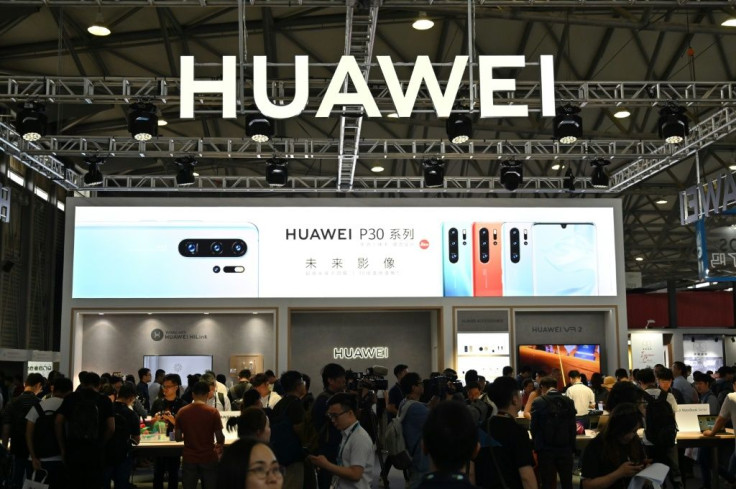UK vs. Huawei: Decision Looms On Adding Chinese Telecom Company's Controversial 5G Technology

KEY POINTS
- Prime Minister Boris Johnson could decide this month whether to use Huawei to build a 5G network
- The U.S. has threatened to reduce intelligence-sharing if Huawei wins the contract, fearing it could glean information and turn it over to Beijing
- Several other countries have bowed to U.S. pressure, including Australia and Japan.
Britain’s domestic intelligence service is not concerned use of Huawei Technologies Co. equipment in the country’s 5G mobile network will damage the intelligence-sharing relationship between the U.K. and U.S.
The Trump administration has been lobbying the U.K. to reject Huawei’s equipment, reportedly threatening counterintelligence operations. The U.S. has said Huawei, which has close ties to the Chinese regime and is Beijing’s biggest tech firm, could spy for China by diverting information from its networks, something the company has labeled nonsense. London also is being pressured by Beijing, which warned rejection of Huawei could damage the U.K.-China relationship.
Huawei, which was founded in 1987 as an electronics reseller, is now one of the world’s biggest private companies, leading in such categories as telecommunications equipment, smartphones, cloud computing and cybersecurity, especially in Asia, Europe and Africa. It expects to have built 5G networks in 30 countries by the end of this year.
Fifth generation -- 5G -- is the next generation in mobile networks and is expected to open the way for expansion of the internet of things, including widespread use of self-driving vehicles and other forms of automation. For consumers, it promises faster data transmission.
The Trump administration blacklisted Huawei last May but has since offered a series of 90-day reprieves. The company has been accused of doing business with Iran and North Korea despite U.S. sanctions, as well as stealing technology from other companies.
Japan, Australia and Vietnam are among a handful of countries that have opted against Huawei. The company, however, has a number of contracts with Russia and countries in the Middle East and Southeast Asia.
The pressure on Britain comes as Brazil has rejected the U.S. allegations. Marcos Pontes, the minister for science, technology, innovation and communications, told Bloomberg last week Washington should respect Brazil’s decisions, just like Brazil doesn’t criticize what business the U.S. does with China.
The German government is divided over the issue, with China hinting at retaliation against Volkswagen and Mercedes if Huawei is rejected.
British Defense Secretary Ben Wallace told the Sunday Times that U.S. anti-Huawei lobbying has been “aggressive.”
“It’s not a secret [that the U.S. has threatened to reduce intelligence-sharing],” he said. “They have been consistent. Those things will be taken into account when the government ... makes a decision on it.”
Prime Minister Boris Johnson is expected to decide as soon as this month on vendors for Britain’s 5G network, a decision that could signal the direction a post-Brexit Britain could take.
Andrew Parker, head of MI5, said if the government goes with Huawei technology, he doesn’t expect that to undermine the U.S.-U.K. relationship.
“It is, of course, of great importance to us. And, I dare say, to the U.S. too, though that’s for them to say. It is a two-way street,” Parker told the Financial Times. Parker, who steps down from his post in April, said the relationship between the U.S. and British intelligence agencies is “very close and trusted.”
Britain’s four mobile networks -- Vodafone, BT, EE and Three – all are using Huawei equipment in their non-core level 5G networks, including antennas and base stations. Vodafone has said it found and fixed a number of backdoors on equipment used in Italy in 2011 and 2012, undermining Huawei’s arguments.
Core operations are considered customer details and how calls are routed.
The decision to allow Huawei technology in was made by the previous government led by Theresa May. Forbes said Johnson is expected to take a harder line.
Parker said there likely should be a wider discussion on “how … we get to a future where there’s a wider range of competition and a wider range of sovereign choices.”
Huawei U.S. security chief Andy Purdy calls the U.S. allegations “falsehoods” and “inexcusable.”
“What's really struck me in the last year, is the number of things said by American government officials that are flat out wrong,” he told Forbes.
© Copyright IBTimes 2025. All rights reserved.






















